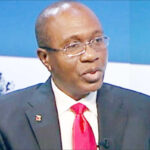One is not surprised that the Central Bank of Nigeria (CBN) took umbrage at the criticisms of the Nigerian Economic Summit Group (NESG) on how it is implementing its various intervention programmes. The NESG in a much circulated, ‘Matters of Urgent Attention’ press statement had picked holes in the implementation of the Anchor Borrowers Programme and other monetary interventions and programmes of the CBN.
To be fair to the NESG, its letter was even more critical on the government on many other things that were impinging upon the wellbeing of the economy and the citizenry at large. It raised issues on the high level of insecurity and how it is affecting the business environment and investment flows. It raised issues on the recently enacted Companies and Allied Matters Act (CAMA), particularly concerns expressed by stakeholders on some of the provisions of the Act.
The NESG had a word or two on a whole range of issues currently in the national front burner – the Petroleum Industry Bill (PIB) as it affects the destiny of the Oil and Gas Industry; decaying infrastructure, reopening of the eastern ports, price deregulation of fuel and electricity tariff, reopening of closed land borders, rising tide of unemployment and poverty etc.
But it was the CBN that was most piqued, probably because it featured prominently in the 15-paragraph letter and expectedly it also received the most censure. Besides the Anchor Borrowers Programme which the NESG pooh-poohed as an inadequate measure to make a difference in the country’s food requirements, the NESG also raised issues with the CBN’s allocative role in the disbursement of foreign exchange.
Other allocative roles included the disbursement of intervention funds and price fixings which the NESG claimed were carried out without appropriate policy clarity which could be subjected to abuses, manipulations, and significant market disruptions, ‘reflective of a policy akin to crony capitalism’.
The NESG had harsh words for the CBN for whatever role it played in the enactment of the Bank and other Financial Institutions Act 2020 recently passed by both houses of the National Assembly. It pointed at certain provisions in the Act that seem to confer immunity on CBN officials and exempt actions by the CBN from judicial review as going against the grain of the constitution. The NESG even went to the extent of requesting the president to withhold his assent, ‘until the bill is reviewed, amended and is made fit for purpose’.
The NESG’s censure must have hurt so much that the CBN’s reply came hot on the heels of the press statement. The deep annoyance of the CBN that runs through the rebuttal is palpable. It gave detailed, and in my view, understandable explanations on their actions towards stabilising the economy that had suffered from the extraordinary shock of the pandemic. It was able to show that the measures, including the palliatives given to individuals affected by the pandemic, helped to contain a significant decline in GDP growth in the 2nd quarter of the year. From available statistics, there had been some measure of success. The CBN said even though analysts had expected that GDP would decline by 7.1%, but the impact of the measures of the monetary and fiscal authorities helped to reduce this decline to 6.1%.
But what probably irked the CBN so much was the fact that it thought it had an open and cordial relationship with the NESG and expected it to have cleared some of the allegations with it, instead NESG decided on the open press statement. The immediate fallout of the CBN press statement was the resignation of three chief executives of banks, Sterling, UBA and First Bank, that were on the Governing Board of NESG giving reasons that they were not carried along before the press release was issued.
What is even intriguing from the resignations is the fact that Asue Ighodalo who signed the press statement as Chairman Board of Directors of NESG is the chairman of Sterling Bank whose managing director is among those that have now abandoned NESG. Of course there are insinuations here and there that the chief executives who left the NESG were pushed to jump by the CBN. The bank chief executives have denied any such arm-twisting by the CBN yet many may judge their action to be otherwise.
Nevertheless, what all these add up to would be the fact of a total communication breakdown between the NESG and the CBN.
In its heydays, the NESG, a private sector initiative, used to be one of the influential think tanks especially on matters affecting the economy. One of the founding fathers of the NESG told me that in the 1990s, during the reign of General Sani Abacha, there was no critical decision on the economy that was ever taken without the input of the group.
In fact, the NESG was the cornerstone of one of the most brilliant national planning documents we ever had, the Vision 2020, one of the legacies of that regime. One would therefore wish to see the NESG return to that prime role. The mass of talent and experience in the NESG should be in the midst of play, not on the bench or at the sideline.

 Join Daily Trust WhatsApp Community For Quick Access To News and Happenings Around You.
Join Daily Trust WhatsApp Community For Quick Access To News and Happenings Around You.

